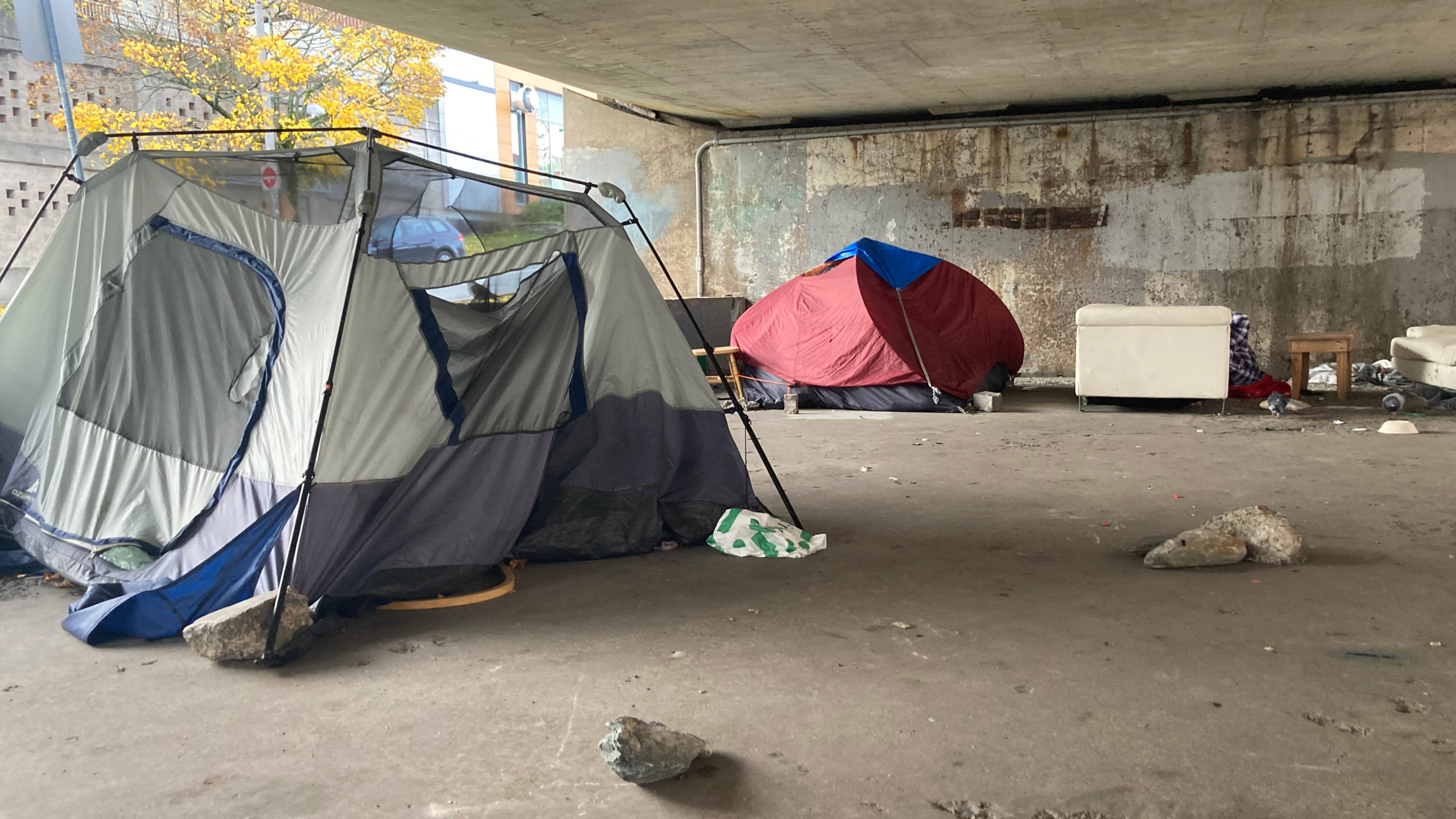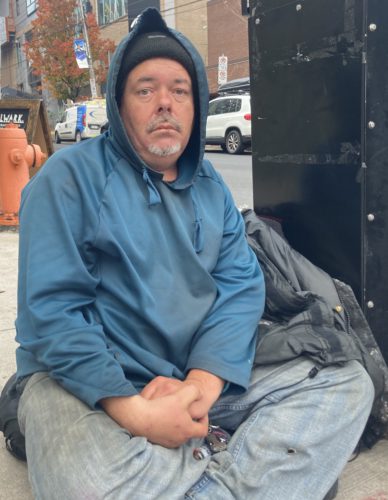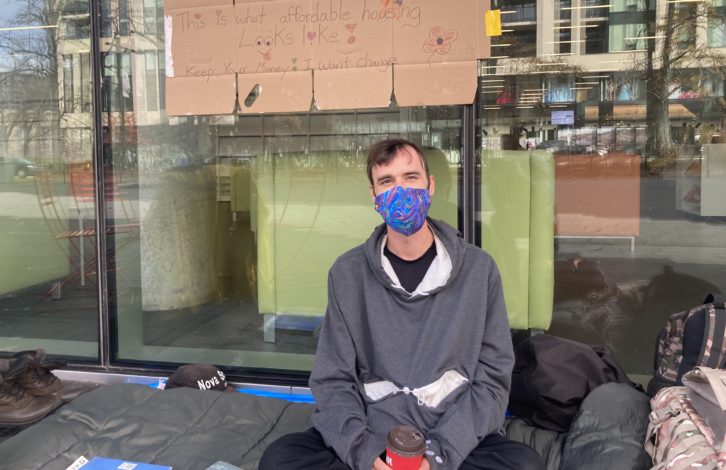‘Shelters are not the answer’ to homelessness, advocates say
Affordable housing group says more than 470 people are experiencing homelessness in HRM

caption
Tents set under the Cogswell Interchange near downtown Halifax.Fewer shelter beds and a growing homeless population in Halifax show a need to change our approach to affordable housing, advocates say.
Social distancing rules due to COVID-19 have reduced the number of beds available at most facilities in the city. Shelter Nova Scotia’s men’s shelter, Metro Turning Point, has 30 beds compared to 50 last year. Its women’s shelter, Barry House, is down to 17 from 20.
As of Nov. 10, the Affordable Housing Association of Nova Scotia says 477 people were experiencing homelessness throughout the Halifax Regional Municipality.
“We’re turning away up to 10 people a day at each of our shelters,” said Jayme Lynn Butt, a spokesperson for Shelter Nova Scotia.
Butt said between Oct. 5 and Oct. 18, the men’s shelter received 215 requests for a bed and had to turn away 44 people. The women’s shelter received 55 requests and turned away 23 individuals.
Turned away

caption
Byron O’Brien started living on the street in April at the height of the COVID-19 pandemic.Byron O’Brien said he’s tried to get a bed at a shelter this week without success.
O’Brien, 52, has been living on the street since April when the pandemic escalated and everything closed. He said he had access to nothing, not even public bathrooms.
“I’ve been through a lot,” said O’Brien. He said he’s been robbed, beaten up, and harassed while living on the street.
Still, O’Brien has reservations about using shelters. There’s no privacy. He said he runs into just as many problems in there as he does outside.
“I just want a safe place to stay,” he said.
Not the solution
Andrew Goodsell said he doesn’t go to a shelter because he doesn’t feel it’s a safe or healthy environment. “A shelter is kind of like adding dirt to a wound,” he said.
At 34, Goodsell has been on and off the streets for six years. He said he feels having his own space would help him get back on his feet.
“It gives you your own kitchen, so you can cook and clean, and feel good about yourself,” he said. “Because you’re able to do stuff for yourself, the stuff society wants to see us doing.”
Eric Jonsson with the Navigator Street Outreach program works closely with people experiencing homelessness to connect them with services. Like Goodsell, he wants more than shelters.
“I think shelters are a terrible solution to homelessness,” Jonsson said. “We just need to provide people with individual apartments. That’s so much more dignified. It’s better in every way.”

caption
Andrew Goodsell in front of the Halifax Central Library with a sign that reads, “This is what affordable housing looks like. Keep your money. I want change.”This summer, the B.C. government purchased hotels to house the homeless. In March, the Nova Scotia government temporarily paid for hotel rooms for homeless people but cut off funding by May. The initiative did continue with federal money until July.
Shelter of last resort
The Out of the Cold shelter, known as a shelter of last resort, is expected to open in a new location for Dec. 1. The facility, which runs during the cold months of the year, lost its longtime home in 2018 and operated out of the Mi’kmaq Native Friendship Centre last winter.
Michelle Malette, executive director of the Out of the Cold Community Association, said they’re waiting to finalize the lease before announcing the location. They plan to offer 20 beds this winter, but Malette knows it won’t be enough.
“People need their own space. Shelters are not the answer,” she said.
Next year could be different. Malette wants to transition Out of the Cold into a supportive-housing model that puts affordable housing units and co-ordinated services under one roof, if they can secure the space and funding.

